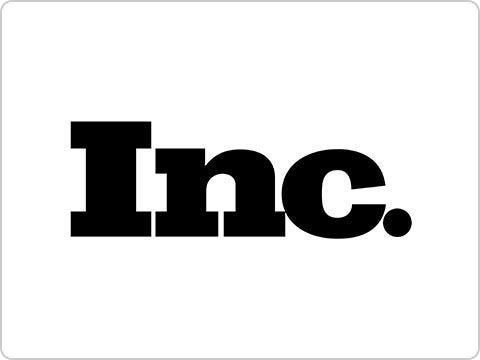
Vaccine drives can be incredibly efficient, but also have a cost. Here’s a look at the factors to consider before hosting your own event.
To juice vaccination rates and get employees back to work, some companies are opening their own vaccination clinics. Doing so isn’t simple; nor is it even possible for many businesses, as the laws regarding employer vaccination drives vary by state. But if you’re in a state where it’s legal, hosting your own drive can help overcome potential distribution barriers and reduce overall hesitancy.
Just ask Chuck Surack, the founder and CEO of online musical instruments retailer Sweetwater. In April, just after his home state of Indiana began allowing businesses with more than 1,000 employees to administer Covid-19 vaccines directly to staff in the workplace, the Fort Wayne-based business held three on-site Moderna vaccination drives. In addition to offering jabs to the company’s more than 2,000workers, Surack allowed their spouses and eligible dependents to get them too. Surack says the drives have made getting his staff vaccinated much easier, removing any barriers or concerns about taking time off or scheduling appointments.
“For us, the key benefit we saw in offering on-site vaccinations was to minimize any stress or worry for our employees when it comes to accessibility,” says Surack. “We firmly believe that those who want to receive the vaccine should have the opportunity to do so without having to sacrifice time or convenience.”
It makes business sense too. While the cost of hosting a vaccination drive will vary based on the number of employees you have and your location, it may be lessened as the cost of the vaccines themselves and administration fees are covered by the U.S. Department of Health. In Sweetwater’s case, the state supplied the vaccines and syringes and everything else at no charge. The company bought a freezer for $4,000, and the rest of the cost was simply manpower, says Surack. Also, it’s worth noting that the cost of workers getting sick–or worse–is far steeper.
The math makes sense enough for companies like Amazon to both incentivize workers to get jabs and to host their own clinics. The e-commerce giant offers existing employees a $40-per-dose benefit to get a jab. More recently, the company announced it will provide those who’ve already been inoculated a $100 hiring bonus, as it plans to hire as many as 75,000 new employees, ahead of its June Prime Day sales event. It also began offering mass, on-site vaccination events at fulfillment centers in Missouri, Nevada, and Kansas in late April. Since then, the company has held vaccination events at fulfillment centers, sort centers, delivery stations, and data centers in more than 29 states.
“Offering vaccinations on-site makes it faster and easier for our employees to get a shot in the arm,” Brian Huseman, vice president of public policy at Amazon, told the U.S. Chamber of Commerce, which spearheaded a vaccines-at-the-workplace initiative, dubbed Rally for Recovery. “In some locations, we’ve been able to partner with local authorities to open our vaccination program to our employees’ entire household, helping to further safeguard their health both in the workplace and at home.”
Barriers to entry
While you may not have the bankroll that Amazon does, it is getting easier to sponsor your own vaccination site. CVS Health announced on Wednesday that it will expand Return Ready, a Covid-19 testing solution that now includes vaccination options. The company says it will now allow small businesses with more than 48 employees to sponsor an on-site clinic with Covid-19 vaccines administered by CVS Health for eligible populations.
States are also starting to relax their rules around satellite clinics. Earlier this year, clinics were closed in New York State for deviating even minimally in vaccine administration or giving extra doses, and doctors were punished or suspended, says Vino Palli, a medical doctor and founder of MiDoctor Urgent Care in New York City. Now that supplies are outweighing the demand, he says, officials are loosening their grip.
After Massachusetts suspended its employer vaccination programin February, because of short supply, the state reversed itself on Wednesday. Starting Monday May 17, 2021, companies will be able to book a blockof appointments at mass vaccination sites, and employers with more than 35 workers can request to host a vaccination clinic at their offices.
“We’re doing a ton of work in Massachusetts,” says Eva Sadej, CEO of Medbar, a New York City-based on-demand Covid testing and vaccination service.
Best practices
Besides checking if your state or municipality allows in-office vaccination drives, which you can often find listed on your government’s website, you’ll need to make sure your medical records hygiene protocols are on point. There’s a risk of exposing confidential medical information, notes Mark Kluger, an employment attorney and partner at Kluger Healey, a Lincroft, New Jersey, based law firm. He adds that you may face liability risks should something go wrong at the office and an employee has an allergic reaction or gets seriously ill after getting a jab.
If you’re going to provide vaccinations in the office, you need to get more than just a legal team on board. It might help to contact your insurance broker or a part-time consultant to help navigate the logistics, says Sadej.
One of the best ways to ensure you’re following the proper protocols is topartner with a nearby urgent-care facility, or other local health center that is offering vaccinations, says Palli. Ideally, the centers will be well-versed in local procedures and can handle setting up the clinic, as well as the intake of any required medical information.
If you want to hire an organization to conduct a vaccination clinic, you can check to see if the organization has pledged to follow CDC guidelines and provide safe and effective vaccines. The Centers for Disease Control and Prevention has a checklist for all satellite, temporary, or off-site vaccination locations that should be followed. The checklist ensures that vaccines are handled properly, the right personnel are present, and the clinic is set up for privacy and safety.
In the end, for most small businesses, hosting a workplace clinic is probably more effort than it’s worth, say Sadej and Kluger. They agree that for most, and especially for those in urban areas where vaccines are more readily available, there’s enough local supply that holding a satellite clinic isn’t necessary. Instead, Sadej says, book a time slot or two at a clinic during work hours for people to get a vaccine and orchestrate transportation if necessary.
“It’s probable that a majority of employees who want vaccines are already vaccinated or able to get one themselves,” says Sadej.
Author: Brit Morse
Full Article: https://www.inc.com/brit-morse/vaccine-drives-amazon-small-business-clinics-workplace.html









